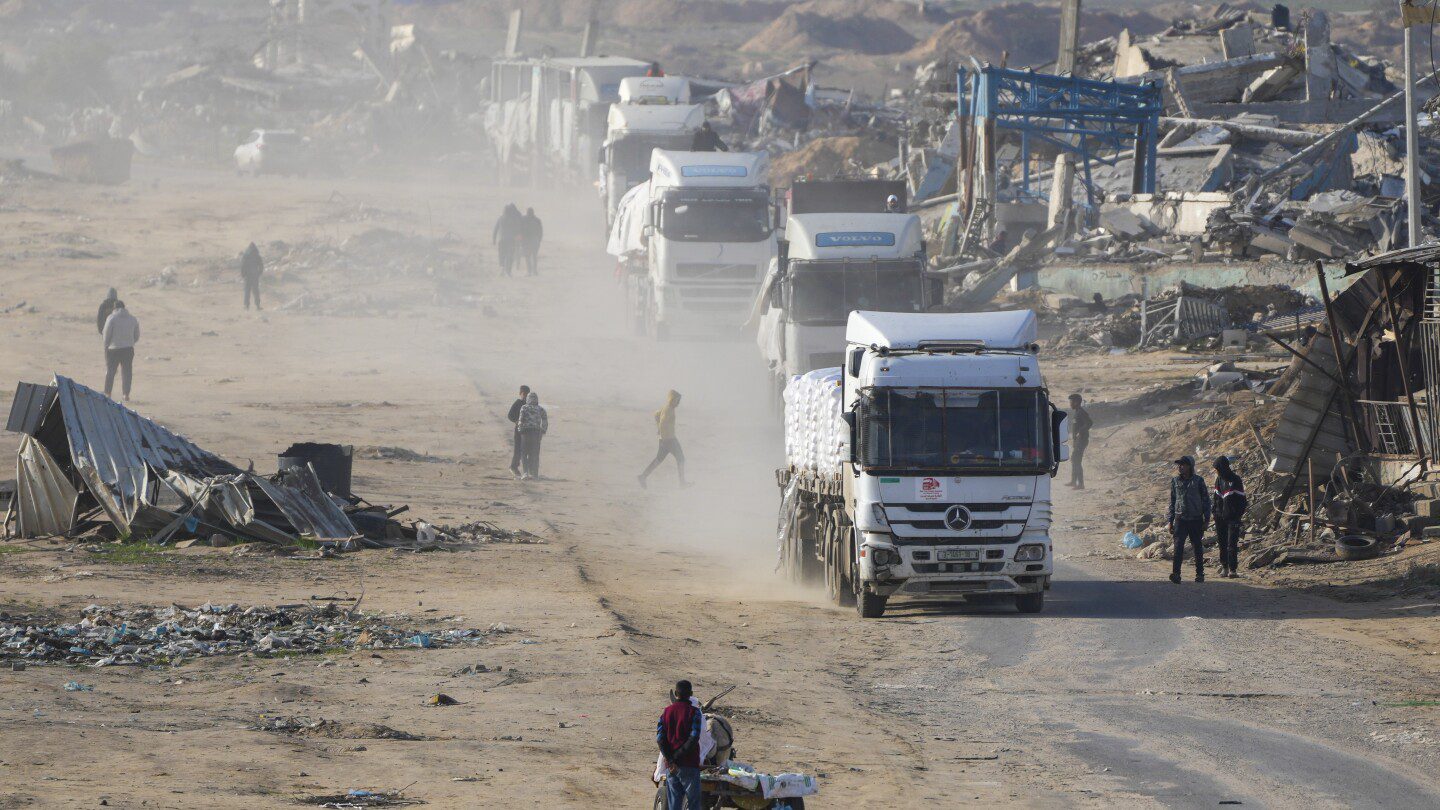
JERUSALEM (AP) — On Wednesday, Israel’s defense minister issued a stark warning that “all hell will break loose” for Hamas if the group fails to release hostages as scheduled this weekend. This escalates the rhetoric against the militant organization amid ongoing negotiations to uphold a ceasefire.
Recent developments suggest that progress might be possible. The tension arose when Hamas accused Israel of not fulfilling certain commitments tied to the ceasefire, which included the provision of tents and other crucial aid. Consequently, Hamas indicated that there might be a delay in the imminent hostage release planned for Saturday.
Hamas official Mahmoud Merdawi shared with The Associated Press that there are “positive signals” regarding the release of three hostages as scheduled on Saturday; however, they have yet to receive a definitive assurance from Israel about adhering to the agreement.
An Egyptian representative familiar with the discussions indicated that both parties are nearing an agreement. Speaking under the condition of anonymity due to the sensitive nature of the negotiations, the official noted that Israel has promised to send additional tents, shelters, and heavy machinery to Gaza.
Israeli authorities have refrained from immediate commentary. They assert that they are meeting their obligations under the agreement, which began on January 19 and has temporarily halted the intense conflict in Gaza, offering relief to countless Palestinians.
In the current initial phase of the ceasefire, which is set to last 42 days, Israel is expected to supply substantial aid. Meanwhile, Hamas has committed to release 33 hostages taken during its cross-border assault on October 7, 2023, which ignited the ongoing conflict. Reports indicate that eight of these hostages are presumed dead. So far, 21 hostages have been freed, alongside numerous Palestinian detainees from Israeli custody.
Escalating Threats Between Israel and Hamas
The prospect of delaying the hostage release has provoked ire from Israeli Prime Minister Benjamin Netanyahu, who threatened to resume military action should Hamas fail to comply. He has also instructed an increase in troop presence around Gaza after previously pulling back forces from populated areas during the truce.
Israeli Defense Minister Israel Katz reiterated the stern warning, aligning with U.S. President Donald Trump’s assertion that “all hell will break loose” if hostages are not released as planned. Katz stated, “If Hamas halts the release of the hostages, the deal is off, leading to war.” He added that a “new Gaza war” would persist until Hamas is defeated, making room for Trump’s vision to relocate Gaza’s population to neighboring nations.
In response, Hamas spokesperson Hazem Kassem dismissed the “threat rhetoric” from U.S. and Israeli officials, urging Israel to uphold the ceasefire terms. Hamas contends that Israel is not facilitating the previously agreed-upon quantity of tents, prefab homes, and heavy machinery into Gaza.
Trump’s Comments Challenge the Fragile Truce
The ceasefire’s stability has also been shaken by remarks from Trump, who suggested relocating Palestinians from Gaza to neighboring Arab nations so the U.S. could “own” and rehabilitate the region—potentially excluding current residents.
Both Jordan and Egypt, the proposed countries for relocating Palestinians, have firmly rejected the suggestion. Jordan’s King Abdullah II reiterated his disapproval after meeting with Trump at the White House on Tuesday.
Furthermore, Trump proposed that all remaining hostages yet to be released under the ceasefire’s initial phase should be freed simultaneously—this prompted Israel to call for additional hostages to be released on Saturday. The previous releases have been gradual and nearly weekly.
This recent dispute arises as Israel and Hamas were anticipated to initiate talks regarding a second phase of the agreement, aimed at extending the ceasefire, ensuring the complete withdrawal of Israeli forces from Gaza, and achieving the release of the remaining hostages who are still alive.
However, there appears to be little advancement in those negotiations.
Netanyahu finds himself under pressure from his political allies to renew military campaigns after the initial phase, while simultaneously grappling with growing frustration among Israelis who are shocked by the deteriorated condition of the released hostages last Saturday, demanding he adhere to the terms of the agreement.
___
Magdy reported from Cairo.
___
Stay updated on AP’s coverage of the war at https://apnews.com/hub/israel-hamas-war









